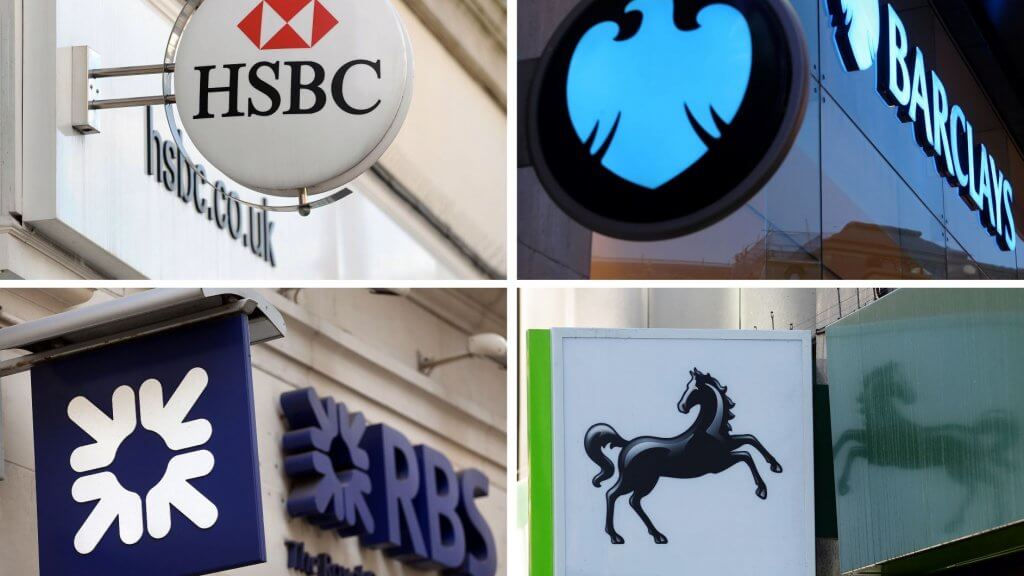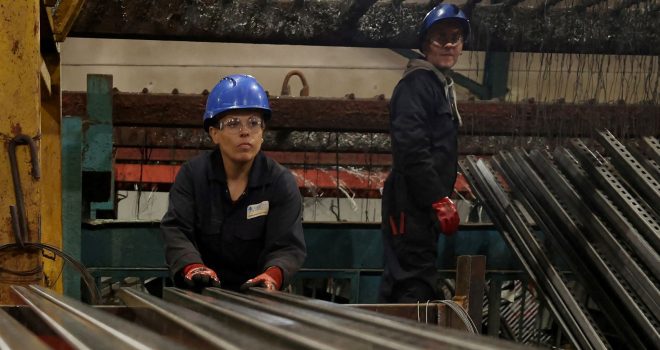Banks Hope To Leave Financial Crash Woes In Old Decade

More than a decade on from the financial crisis, British banks hope to put the shock firmly behind them as they go into the third decade of the millennium.
Despite competition from the challengers, regulation, pensions and a mortgage price war, the banks will be relieved to have escaped PPI, weathered another Bank of England stress test, and launched their own rivals to the nifty new apps that have started capturing customers.
The Government, perhaps preoccupied with Brexit, elections and other challenges, did not reduce its stake in the Royal Bank of Scotland (RBS) as it had in 2018. By putting new chief executive Alison Rose in charge, the bank hopes it has turned a corner.
Ross McEwan was the boss who helped reform the bank after its bailout during the financial crisis.
The bank has shrunk significantly since the New Zealander took charge in 2013, reducing assets from more than £1 trillion to £730 billion, headcount from 109,000 to 66,600, and withdrawing from 26 of its 28 countries.
Analysts and insiders will hope that his replacement, Ms Rose, can now focus on running a fairly normal high street lender. Although there is still work to be done to correct the problems created in RBS’s heyday, when it was briefly the world’s biggest bank.
“Is it back to being an all-singing, all-dancing bank? I think probably not,” said Nicholas Hyett, an analyst at Hargreaves Lansdown.
“They probably have some questions to answer about what the future of NatWest Markets is within the group. It doesn’t quite gel with what they’re doing elsewhere.”
The bank also spent some of the year reacting to challengers nipping at its heels. In November RBS launched Bo, a new app-based current account, which it hopes will help it knock back some of the stiff competition from the likes of Monzo, Revolut and Starling.
Metro Bank ended the year as it started, in crisis, as long-term chief executive Craig Donaldson announced his intention to step down. It was the final major piece of bad news after a calamitous year for the high street challenger.
In January the bank revealed a major error in its accounts. Shares are still in the doldrums, down around 90% from their value at the year-start.
Another high street bank, TSB, faced its own problems over the year as it tried to stabilise after a major IT failure in 2018.
In November the bank was embarrassed as some account holders did not get their salaries paid into their accounts due to another IT glitch. It was made considerably worse coming, as it did, just days after law firm Slaughter and May found that the TSB board had lacked common sense in the run-up to the 2018 outage.
Then, just days later, staff were told that 82 branches of the bank would be closing, with up to 400 jobs lost.
In December, Santander’s UK chief Nathan Bostock took the biggest blow as the lenders set CEO’s pensions in line with new Investment Association guidelines to align them to the rest of the workforce. His pension will be slashed by £436,000 over two years, while rivals at Lloyds, RBS, HSBC and Barclays, have, or are set to, reduce their CEO’s pensions.
Stuart Sinclair, the head of Lloyds remuneration committee, which sets executive pay, told the Work and Pensions Select Committee that people think his chief executive, Antonio Horta-Osorio, is a “winner” who deserves his pay package.
Meanwhile, mortgage wars raged over the year. After lenders were forced to ring fence their retail banks – ie separate out the part of the bank which lends and handles customers money from the investment bank – it left more money for loans.
“It has created a scenario where there was surplus liquidity in these ring-fenced banks, and clearly, that has led to that liquidity being put into the mortgage markets. And therefore there have been some fairly aggressive price wars,” said Dan Cooper, head of UK banking at EY.
And finally, the PPI scandal at last came to a close this year, as the deadline for applications passed in August.
The industry took a massive hit in the final few weeks as customers scrambled to file their PPI claims. Banks will still be processing the claims and payments for some time to come, but management teams will, with justification, probably not be expecting any big surprises.
August Graham is PA City Reporter.




